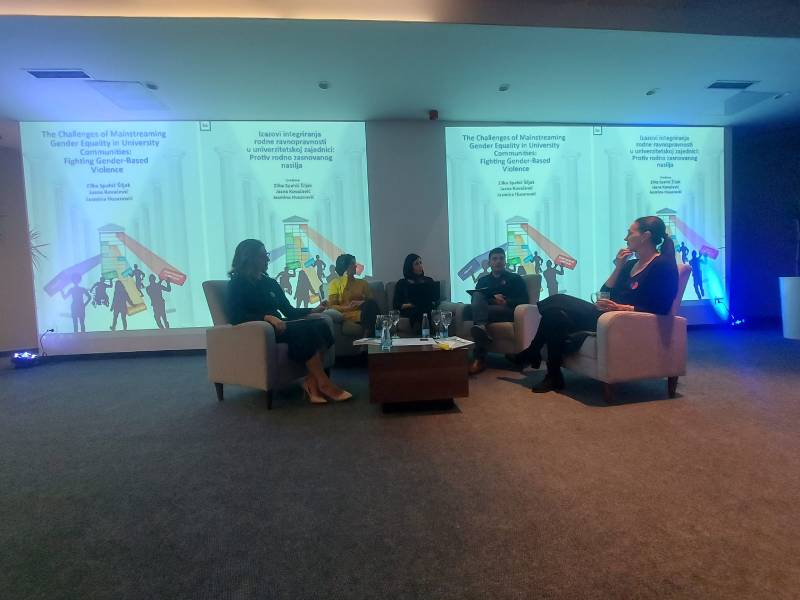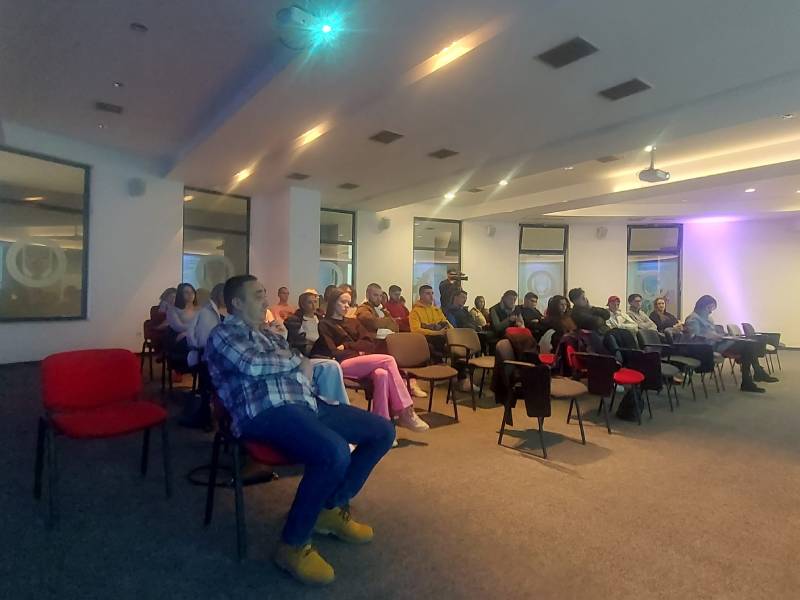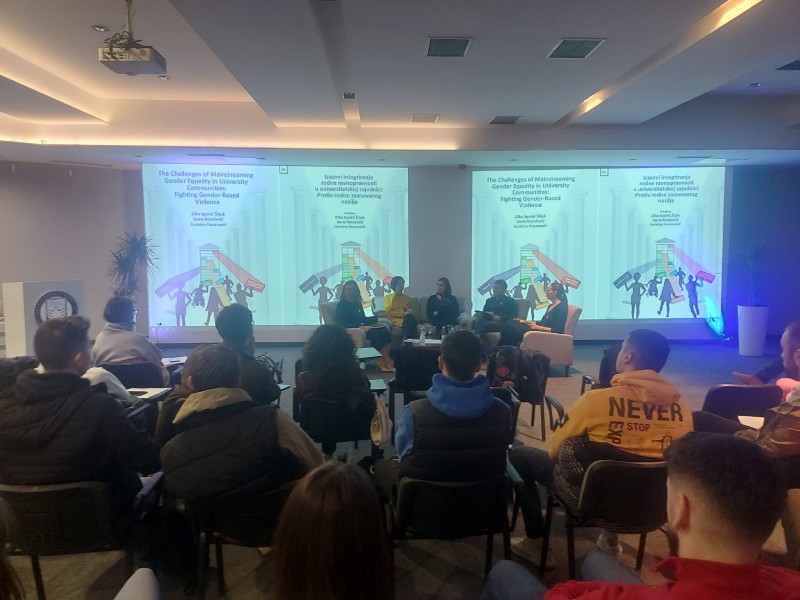Sarajevo School of Science and Technology held on 05.12.2022. the promotion of the book “Challenges of integrating gender equality in the university community”, edited by prof. Ph.D. Zilka Spahić Šiljak, prof. Ph.D. Jasna Kovačević and Prof. Ph.D. Jasmina Husanović.
The book is the result of extensive research conducted as part of the UNIGEM (University and Gender Mainstreaming) project, which the TPO Foundation is conducting in partnership with 19 universities in BiH and the region, and was published with the support of the United Kingdom Government, which also finances the UNIGEM project.
The speakers at the promotion were Prof. Ph.D. Jasminka Hasić-Telalović, UNIGEM project coordinator, Emina Ganić, prof. Ph.D. Jasna Kovačević and Prof. Ph.D. Zilka Spahić Šiljak and the promotion was moderated by journalist Slađan Tomić.
The moderator referred to the key results of the research with a focus on discrimination of minorities, based on ethnicity, gender, sexuality, and religion, on persons with developmental difficulties and disabled people, who are often invisible and suffer more discrimination than the majority group.
Emina Ganić highlighted the part of the research that refers to the use of gender-sensitive language and sexist humour. Although a large number of people in the academic community oppose the use of gender-sensitive language, with the explanation that it is “language corruption” and “language rape”, Ganić explained that language is a living matter, that it is constantly changing, and that it is very important to adapt to the new social reality in which women are now in positions of power and in professions that were previously mostly considered as male professions. Social changes should be accompanied by changes in language so that women are visible, as well as that their needs and contributions to society are represented in language, and therefore in culture.
Prof. Ph.D. Jasminka Hasić Telalović emphasized the importance of changing the organizational culture, policies, and measures that will change awareness and the way of acting, and lead to gender-based violence being formally and fundamentally unacceptable both in the relations between teaching staff and students, and within the entire university community.
Prof. Ph.D. Jasna Kovačević briefly referred to the research process itself and the paradigmatic position of critical realism, which proved to be a pragmatic solution for combined quantitative and qualitative research methods. Critical realism as a different philosophical approach to social sciences provides more space for data triangulation and critical reflection in the interpretation of research results.
In the end, Prof. Ph.D. Zilka Spahić Šiljak added that although it seems to young people that issues of gender-based violence are exaggerated and that there are more important topics that need to be addressed, we should not forget that violence affects the health, career and general well-being of individuals, families and communities. Although it seems to us that offensive jokes are not a problem, we should remember that violence never begins with a blow, but with words and insults, so that the person is dehumanized or psychologically broken.
























